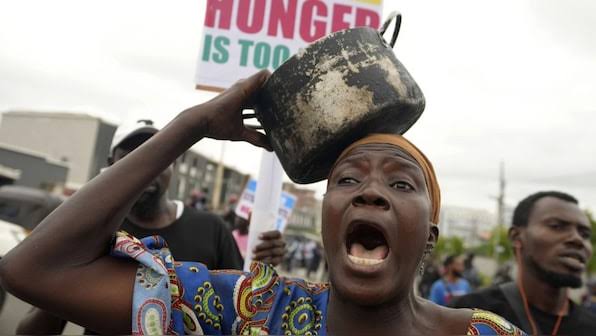
NBS and World Bank Report Highlights Alarming Levels of Food Insecurity in Nigeria
The National Bureau of Statistics (NBS), with support from the World Bank, has raised concerns over the escalating food insecurity in Nigeria, as revealed in the General Household Survey-Panel Wave 5 (2023/2024) report.
The survey, which provides a detailed snapshot of household food access and consumption patterns, paints a troubling picture of the challenges faced by Nigerians in meeting their nutritional needs.
According to the report, 20.8% of Nigerian households have been forced to borrow food or rely on assistance from friends and family over the past month, highlighting the severe financial strains faced by many families. A significant 65.8% of households reported being unable to afford healthy, nutritious, or preferred meals, a clear indication of widespread financial insecurity that prevents access to essential food.
The report also reveals that 63.8% of households are dependent on a limited variety of foods, further contributing to poor nutrition and a lack of dietary diversity. In addition, 62.4% of respondents expressed concern about the possibility of running out of food, a reflection of the persistent anxiety that food insecurity brings to millions of families across the country.
The situation is compounded by the fact that 60.5% of respondents admitted to eating less than they should due to food scarcity, a serious issue that exacerbates malnutrition and contributes to broader public health challenges.
The findings underscore the urgent need for comprehensive policies that not only address the affordability of food but also focus on boosting agricultural productivity, ensuring sustainable food supply chains, and enhancing social safety nets to alleviate hunger and reduce insecurity. The report calls for immediate action from both government and stakeholders to develop and implement strategies that can help mitigate the growing food crisis and provide lasting solutions for Nigeria’s vulnerable populations.





